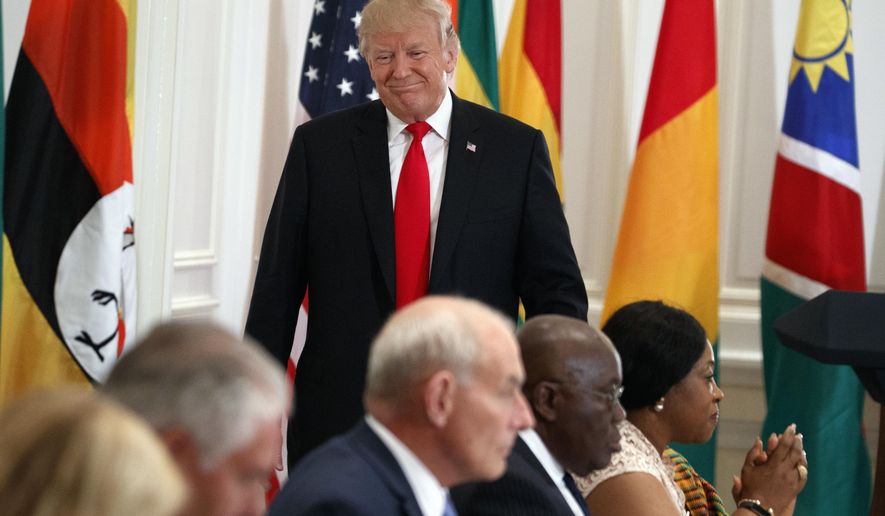OPINION:
The point of political affiliation, like fan loyalty, is to join a team to win. Donald Trump promised voters weary of being beaten like a drum that if he were elected they would soon “get sick of winning.” That hasn’t happened. Yet. So it shouldn’t surprise anyone that most Americans are cheering the president for linking up with the Democrats to post some victories. They might restrain the high-fives, though. Those triumphs come with a hefty price tag.
But no one should blame the president, stung by the failure of the congressional leaders of the Republicans, Mitch McConnell and Paul Ryan, to get anything done on the repeal of Obamacare, for reaching across the aisle to strike a deal with Chuck Schumer and Nancy Pelosi on hurricane relief, budget funding and lifting the debt ceiling.
With Republicans pressing their noses to the window to look in, like poor children in a Dickens novel, the president wined and dined at the White House with the very same arch-nemeses to discuss tax reform and what to do about the “Dreamers,” the children of illegal immigrants born abroad and raised in the United States. It’s a reminder that Mr. Trump switched his party affiliation five times during his business career in New York City, and returned to the Republican Party only five years ago.
A Rasmussen poll finds that, like the Donald, Americans are ready to put points ahead of party. Some 66 percent of likely voters say the president’s outreach to Democrats to advance his agenda is a good idea. Another 13 percent disavow bipartisanship and 21 percent are undecided. Continuing his overtures to Democrats finds favor with 65 percent of respondents, 19 percent want him to stick to his own party, and 16 percent are uncertain.
Not so curiously, a larger proportion of Republicans than Democrats like the idea of the president collaborating with congressional Democrats, 72 percent to 62 percent. With Republicans controlling both chambers of Congress, only 14 percent of voters say the once-Grand Old Party is doing a good or excellent job in the House, and only 11 percent say the same for the Senate.
The bottom line is that results matter. But are these the results the president promised — the promises that will make America great again? Following the money leads to the answer. The Trump-Schumer-Pelosi deal keeps the nation on course for an epic economic disaster. Social Security trustees project the fund for retirees will be depleted by 2034; the Congressional Budget Office places it even earlier, at 2030. The Medicare trust fund for seniors’ health care is expected to go broke by 2029. The budget office says 2026.
These three Washington worthies took one look at the coming catastrophe, closed their eyes and jumped, enabling the debt ceiling to break the $20 trillion mark. Nary a word of fiscal fear was spoken, though the prospects are ominous: reduced benefits, higher taxes or more borrowing.
Interest on the national debt, 6.8 percent of the budget in 2017, is pegged to explode to 12.2 percent by 2026. That would be a sure-enough big bang. At $787 billion, the sum of annual interest will eclipse the defense budget and continue to climb to places out of sight. Steering the nation into dire financial straits is not Donald Trump’s fault (they’re largely Barack Obama’s), but he was elected to steer the nation out. His championing of tax reform to boost the economy’s growth rate to 3 percent would bring in an extra $10 trillion over a decade, but won’t prevent a looming financial beatdown.
If that’s winning, American can’t afford success.




Please read our comment policy before commenting.